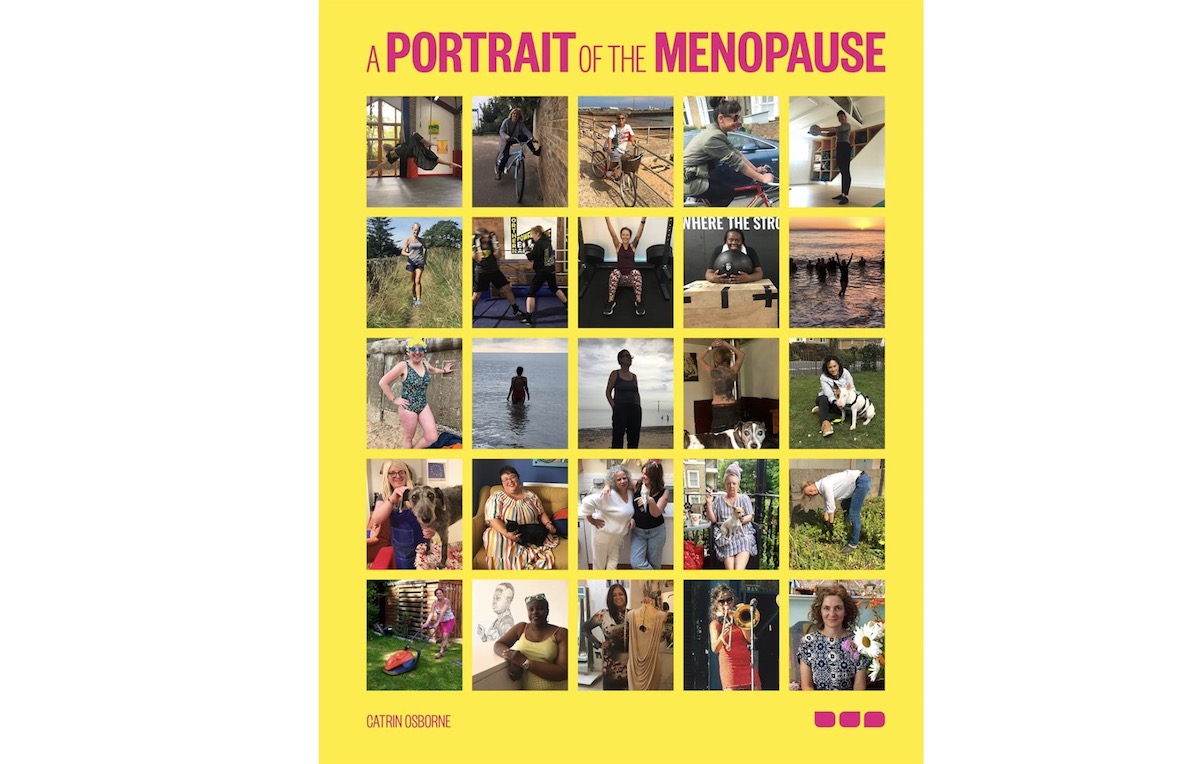There are a few words in the English language that carry as much quiet discomfort as menopause. It’s the point at which conversations tend to trail off, eyes avert, and the subject is neatly folded away into euphemism. A Portrait of the Menopause—a new book by Catrin Osborne—refuses that silence. It looks directly at what most have been taught to sidestep.
Osborne’s project began, like many honest ones do, from necessity. Confronted by her own experience of menopause, she realised how little there was in the public realm that reflected it truthfully. There was information, yes—clinical, biological, packaged—but no imagery, no real language for what it feels like. So she did what artists often do when faced with absence: she filled it.
The result is a collection of 80 portraits of women who are either living through or have emerged from the menopause, each photographed in her “happy place.” These are not studio shots designed to flatter. They are lived-in, luminous, and quietly confrontational. Each sitter occupies her own world—a garden, a kitchen, a shoreline—and each space tells you as much as her expression.
“What does the menopause look like?” Osborne asks. Her answer: not one thing. It appears to be a mix of strength, exhaustion, humour, and relief. It seems that women are reclaiming a narrative that was never intended to serve them.
The accompanying interviews are as unfiltered as the photographs. The women speak with candour about rage, grief, and liberation. Some describe the body’s betrayal; others describe a profound homecoming to the self. Osborne’s editorial hand is light—she listens more than she leads—and that trust gives the book its strength.
There’s no didactic gloss or faux empowerment here. What emerges instead is texture: the messy, conflicting realities of a transition that resists simplification. The work feels grounded in conversation, not campaign.
What distinguishes A Portrait of the Menopause from other “awareness” projects is its tone. It’s not an attempt to prettify or politicise; it’s an act of documentation. Osborne approaches her subjects with respect rather than reverence, and the result feels communal rather than performative. You sense she’s part of the story, not outside of it.
Visually, the book reads like a patchwork of small revelations. There’s something deliberate in its ordinariness—the gentle defiance of showing women as they are, in places where they feel most themselves. In that way, it does something rare: it turns the unseen into portraiture without spectacle.
In a culture obsessed with youth and smoothness, A Portrait of the Menopause feels like an overdue act of reclamation. Osborne’s images don’t demand empathy; they invite it. They make space for honesty, humour, and the kind of beauty that comes with endurance.
It’s a book that answers a question we should have stopped asking decades ago—not what’s wrong with menopause, but why have we been so afraid to look at it?

